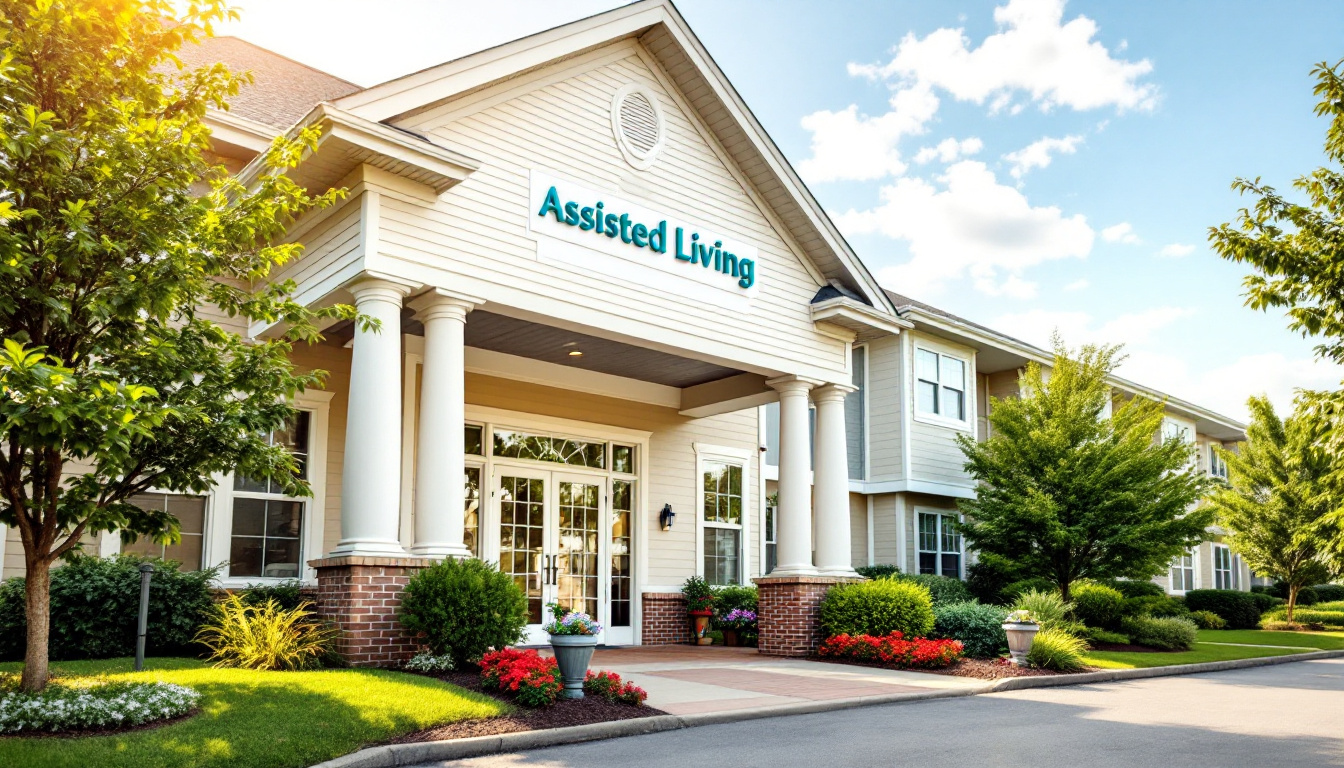How Hospice Services Incorporate Holistic Healing Practices
Embracing Holistic Approaches in Hospice Care

Introduction
In hospice care, the traditional focus on medical treatment is increasingly complemented by integrative practices that consider the whole person—body, mind, and spirit. These holistic healing practices are transforming the landscape of end-of-life care, providing a multidimensional approach to enhance the quality of life for patients and offer support to their families.
Understanding Holistic Healing in Hospice

What is Holistic Care?
Holistic care in hospice settings focuses on treating the whole person—addressing not just physical ailments but also emotional, spiritual, and psychological needs. By considering aspects such as mental health, family dynamics, and individual beliefs, holistic care aims to improve overall well-being during end-of-life stages. This approach embraces non-conventional therapies alongside traditional medical treatments, ensuring that patients receive comprehensive support throughout their illness.
What is the difference between holistic care and palliative care?
Holistic care and palliative care are related concepts, but they differ in their focus and scope. Palliative care specifically aims to relieve symptoms and improve the quality of life for patients with serious illnesses, addressing physical, emotional, spiritual, and social needs, often through a multidisciplinary approach.
Holistic care, on the other hand, encompasses a broader perspective, extending beyond medical needs to include the patient's overall environment, emotions, and personal beliefs, aiming for comprehensive well-being. While palliative care employs holistic principles, holistic care can include additional therapies and support systems that enhance the patient's and family's experience throughout the illness journey. In essence, all palliative care is holistic, but not all holistic care is necessarily palliative; the two can complement each other in enhancing patient-centered care.
Principles of Holistic Care
- Patient-Centered Approach: Treatments are tailored to individual needs, respecting personal preferences and cultural values.
- Comprehensive Support: Holistic care integrates various therapies—such as aromatherapy, Reiki, and nutritional support—to provide all-encompassing care.
- Interconnectedness: The approach acknowledges that physical, emotional, and spiritual health are interrelated, influencing overall well-being.
- Emotional and Spiritual Considerations: Recognizes the importance of emotional and spiritual support in enhancing quality of life, particularly at end-of-life stages.
- Collaborative Care: Encourages teamwork among healthcare providers, patients, and families to foster a nurturing environment throughout the care process.
Holistic care not only enhances symptom management but also significantly improves the overall hospice experience for both patients and families.
Exploring the Holistic Model of Palliative Care

What is the holistic model of palliative care?
The holistic model of palliative care focuses on treating the whole person rather than just the symptoms of illness. This approach encompasses physical, emotional, social, and spiritual dimensions of well-being. The aim is to enhance the quality of life for patients, especially those facing serious or terminal illnesses.
Application in hospice settings
In hospice care, this holistic framework is essential. Care providers implement therapies such as massage, aromatherapy, and Reiki to address diverse patient needs. These supportive treatments improve comfort and emotional well-being, offering relief from pain and anxiety, and helping to foster an atmosphere of peace.
Comprehensive care plans
Individualized care plans are a hallmark of the holistic model. Each plan is developed in collaboration with healthcare professionals, patients, and their families, ensuring that personal goals and preferences are integrated while addressing holistic needs. This enables a more tailored approach to care, optimizing both physical health and emotional resilience.
The Role of the Multidisciplinary Team

Team composition in hospice care
In hospice care, a multidisciplinary team integrates diverse professional expertise to deliver comprehensive care. Typical team members include:
- Doctors: Responsible for medical assessments and symptom management.
- Nurses: Provide daily care and emotional support, ensuring patient comfort.
- Social Workers: Facilitate communication, offer counseling, and assist with logistical arrangements.
- Chaplains: Address spiritual needs and provide emotional support for patients and families.
- Therapists: Implement holistic therapies such as music and art therapy to enhance emotional well-being.
Each member contributes uniquely, ensuring a well-rounded approach to care that addresses physical, emotional, and spiritual dimensions.
Benefits of a team approach
Utilizing a team approach in hospice care provides several benefits:
- Holistic Support: Patients receive care that treats their whole being, improving overall quality of life.
- Interdisciplinary Collaboration: Professionals share insights, enabling innovative solutions for complex issues.
- Continuity of Care: Ongoing assessments allow the team to adjust care in real time, keeping pace with the patient's evolving needs.
These elements help maintain dignity and compassion throughout the patient’s end-of-life journey.
Patient and family support
The collaboration of a multidisciplinary team significantly enhances support for both patients and their families. By addressing individual care preferences and providing educational resources, the team ensures family members are equipped to cope with the challenges of end-of-life care. The integrated approach fosters an environment of respect, allowing families to participate actively in care decisions. Ultimately, this teamwork enhances emotional resilience and well-being during a profound life stage.
Complementary and Alternative Medicine in Hospice Care

How effective are complementary and alternative medicine (CAM) techniques in palliative care?
Complementary and alternative medicine (CAM) techniques have shown promising effectiveness in palliative care. They play a significant role in symptom management, enhancing the quality of life for patients with advanced illnesses. Evidence-based complementary and alternative medicine (EBCAM) stresses the importance of addressing the whole person—body, mind, and spirit.
Numerous studies support the positive impact of various CAM therapies. Techniques like acupuncture, mindfulness practices, and tailored nutritional plans can significantly alleviate symptoms such as pain and anxiety. Research indicates that these interventions often help patients reduce their reliance on opioids for pain relief, showcasing their essential role in comprehensive palliative care.
Examples of CAM therapies
There is a wide array of CAM therapies utilized in hospice settings, including:
- Aromatherapy: Utilizes essential oils to promote relaxation and reduce anxiety.
- Reiki: A healing practice that enhances relaxation and pain management through energy flow.
- Massage Therapy: Provides comfort, alleviates stress, and improves emotional well-being.
- Acupuncture: Restores energy balance and alleviates pain.
- Pet Therapy: Offers companionship and emotional support, positively affecting health.
- Mindfulness and Meditation: Helps patients manage stress by fostering present-moment awareness.
Each of these therapies offers unique benefits that cater to the various physical and emotional needs of patients.
Patient experiences
Patients often seek CAM therapies to complement conventional treatments, particularly when they encounter limitations in symptom management from traditional medicine. The integration of CAM can lead to improved emotional support, thereby enhancing overall well-being. Many individuals report feeling more in control of their care, contributing to a greater sense of peace during challenging times.
In conclusion, while research is ongoing, many patients have experienced short-term relief and an enhanced quality of life from CAM interventions, indicating the need for continued exploration and integration of these practices into holistic palliative care.
Implementing Holistic Therapies in Hospice Care

Holistic Therapies Used
Holistic therapies in hospice care encompass a variety of non-medical approaches aimed at improving quality of life for terminally ill patients. Common therapies include:
- Massage Therapy: This therapy utilizes gentle techniques to soothe muscles, alleviate discomfort, and promote relaxation.
- Aromatherapy: Essential oils, such as lavender and frankincense, are employed to reduce anxiety and improve mood.
- Reiki: This energy healing method promotes relaxation and emotional closure by channeling energy from the practitioner to the patient.
- Pet Therapy: Engaging with therapy animals offers companionship and enhances emotional well-being through love and connection.
- Mindfulness Practices: Techniques such as meditation and guided imagery help manage stress and promote emotional stabilization.
Patient-Centered Approach
A distinctive aspect of holistic nursing care focuses on treating the whole person. This includes not only physical health but also emotional, psychological, and spiritual needs. Effective communication and partnerships among healthcare providers, patients, and families are encouraged to tailor care plans. Nurses play a crucial role, utilizing their training and empathy to implement holistic therapies effectively.
Benefits and Challenges in Implementation
Integrating holistic therapies can yield numerous benefits, such as improved comfort, reduced pain, and enhanced emotional support. However, challenges may arise, including balancing conventional medical treatments with complementary options and ensuring staff is trained in holistic practices. Assessment of spiritual needs is essential, as ongoing spiritual support correlates with improved health outcomes and higher satisfaction with care. An iterative approach allows for ongoing adjustments, addressing the evolving needs of patients and their families.
Conclusion
Holistic healing practices in hospice care epitomize a compassionate approach, focusing on enhancing the quality of life for patients and their families. By integrating traditional medical treatments with holistic therapies, hospice services not only address physical symptoms but also nurture emotional, spiritual, and psychological well-being. As the understanding and acceptance of these integrative approaches grow, so does the ability to provide truly comprehensive end-of-life care. Continued research and collaboration are essential in refining these methods, ensuring that every individual can experience dignity and peace during life's final chapter.
References
- Hospice & Holistic Therapies | VITAS Healthcare
- The Role of Holistic Therapies in Hospice and Palliative Care
- Holistic Approaches to Advanced Illness Management
- Complementary and Alternative Medicine in Hospice and Palliative ...
- Holistic Therapies - Hospice Cleveland
- Integrative Palliative Care | Palliative in Practice
- Ascend Health | Hospice Care Services | Holistic Therapies
- The Role of Emotional Support in Holistic Hospice Care
- Holistic Hospice Care Philosophy: A Comprehensive Approach







































































































